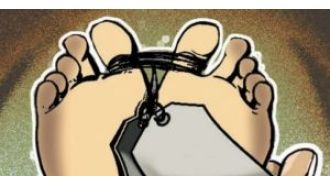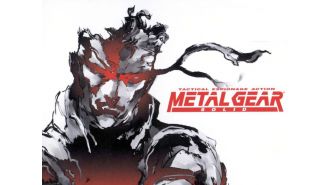The judge overseeing the Madigan corruption trial believes the Supreme Court's opinion does not fully define what it means to act "corruptly" for the jury.
Lawyers in Madigan's trial geared up for a tough battle over the impact of a recent Supreme Court ruling.

The courtroom was abuzz with anticipation as attorneys gathered for the corruption trial of former House Speaker Michael Madigan on Thursday. They were ready for a heated debate over how a recent U.S. Supreme Court decision regarding the federal bribery statute would impact the case. One of the main points of contention was the definition of the word "corruptly" and how it should be interpreted by the jurors.
However, after a five-hour jury instruction conference, Judge John Robert Blakey delivered some unexpected news to both the prosecution and defense teams. According to him, the Supreme Court's ruling in Snyder v. U.S., which involved the former mayor of Portage, Indiana, did not offer any guidance on the definition of "corruptly." Instead, he stated that the long-standing precedent set by the Chicago-based 7th U.S. Circuit Court of Appeals would still apply in Madigan's case.
Judge Blakey clarified that the Snyder case was not relevant to the issue at hand and did not offer any new interpretation of the term "corruptly." He emphasized that the 7th Circuit's definition of the term, which has been in place for many years, would still stand. Madigan's lawyers had argued for a broader definition of "corruptly," one that would distinguish between a citizen's right to petition government officials and a criminal scheme to influence a public official.
The judge cited two 7th Circuit opinions from the past decade that he believed provided the clearest guidance on the matter. The first stated that an agent is considered to have acted corruptly if they understand that the payment they are receiving is a bribe. However, the judge noted that the term "gratuity" would have to be removed from this definition due to the Snyder ruling. The second opinion stated that corruption involves the knowledge that the giver of a payment expects to receive a forbidden influence or reward.
Judge Blakey also clarified that according to his understanding of the law, prosecutors must prove that the defendant knew they were partaking in a bribe. However, they do not have to prove that the defendant knew the bribe was illegal. This means that Madigan's defense team will not be able to use a "mistake-of-law" defense, arguing that the former speaker was not aware that his actions were illegal.
The judge explained that if Congress had intended to include an ignorance-of-the-law defense in the 666 statute, they would have used the term "willfully" instead of the more ambiguous "corruptly." He also pointed out that during previous court proceedings, all parties had agreed that a mistake-of-law defense was not available in this case. However, he gave the attorneys a chance to confer and propose alternate solutions before making a final ruling.
The trial, which began in October, is expected to continue with closing arguments later this month. While jury instruction conferences can be tedious, this one held added significance in light of the Snyder ruling in June, which raised the burden of proof for prosecutors. The Supreme Court's decision stated that "gratuities," or gifts given in thanks for previously taken actions, are not considered criminal under the federal statute, and that prosecutors must prove the existence of an agreement beforehand.
This issue was also a point of contention in the trial of former AT&T Illinois boss Paul La Schiazza, who was accused of bribing Madigan in a scheme that is also part of this case. However, the jury was unable to reach a verdict in September, and the case is set for retrial in June. Judge Blakey declined to dismiss any of the bribery charges against Madigan, stating that the indictment met the criteria set by the Snyder case by alleging that Madigan performed official acts in exchange for various benefits, including jobs for his associates at ComEd.
However, the Supreme Court's ruling will likely have a significant impact on the language used in the jury instructions for the five counts in the indictment that relate to the 666 statute. Despite the lack of guidance on the term "corruptly," some of the proposed instructions were directly influenced by the Snyder case. For example, the definition of an illegal bribe includes the word "exchange," and the instructions also state that prosecutors must prove that the bribery agreement existed before the official action took place.
Originally, Judge Blakey had hoped that the 7th Circuit would have new pattern jury instructions ready by the end of the trial, but this was not the case. Madigan, who is 82 years old and a Democrat from the Southwest Side, and his longtime confidant, Michael McClain, 77, from downstate Quincy, are facing a 23-count indictment that claims Madigan used his position to amass power and enrich himself and his associates.
The indictment accuses Madigan and McClain of pressuring developers to hire the speaker's law firm and conspiring with utility giants ComEd and AT&T Illinois to place Madigan's associates on contracts with little or no work required in exchange for political favors in Springfield. ComEd also allegedly provided legal work to a Madigan ally, granted his request to appoint a political associate to the state-regulated utility's board, and gave summer internships to students in Madigan's legislative district on the Southwest Side.
Both Madigan and McClain have denied any wrongdoing, and the trial will continue next week with more witness testimonies in Madigan's defense. Judge Blakey urged the attorneys to look into the matter further and come back with alternative proposals before making any final decisions.










